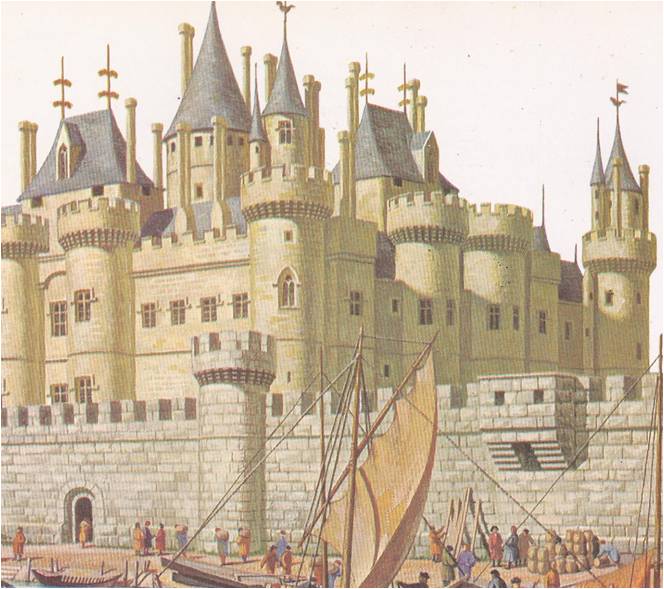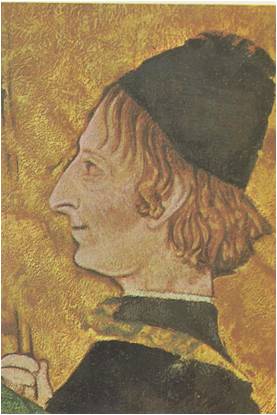IN THE MIDDLE AGES, when knights fought wars in Europe’s fields, robbers roamed the roads and the dark forests seemed filled with unknown dangers, men put their trust in walls. Around each little town rose ramparts of massive stonework, a strong defense against the evils outside. Within the safety of the wall was a crowded little world, complete in itself — a castle‚ a church, a monastery or two, a marketplace and a tangle of cobbled streets lined with the thatch-roofed houses of townsmen. In such a town a man knew his place. He was a nobleman or a knight, …
Read More »England’s Elizabeth: Queen of Words and Music 1511 – 1603
In 1600, the Duke Virginio Orsini‚ nephew of the Medici ruler of Florence, arrived in England. He came to spend the New Year’s holidays and to see for himself the woman who fascinated all Europe. She was Elizabeth, queen of England and she was already a legend. To aristocratic travelers, such as the Duke Orsini, she was the most important tourist sight in England. Years later, she would still be as fascinating as any woman in history, for in her time — the Elizabethan Age — her country flourished as never before and the Renaissance blossomed in England. As a …
Read More »The Renaissance in the North and Spain 1400 – 1598
Through the bustling market-towns of the Low Countries passed the traders, goods and gold of all Europe. Here the luxuries of Asia — spices‚ silks, jewels and perfumes — were exchanged for the practical products of the North — woolen cloth and utensils of iron and copper and wood. In shops and inns, wily Italian shippers and bankers bargained with the solemn, solid merchants from Germany and Flanders — and made the profits that built the Renaissance cities of Italy. In tall-spired cathedrals, in palaces, guildhalls and universities, wandering Italian artists discovered works of art and scholarship as great as …
Read More »The Italian Kings of France 1494 – 1590
In all Europe there was no greater admirer of Italy than Francis I, king of France. Francis practiced Italian manners in his court, built Italian palaces in his parks and kept Italian books in his library. He collected Italian paintings and the artists who painted them. Indeed, the king admired Italy so much that he wanted to conquer it all. Francis was not the first ruler to feel these strong Italian longings. In England, Spain and Germany, kings and princes were busily remodeling their courts, their castles and themselves in the Italian manner. Though the little states of Italy were …
Read More »Gentlemen, Scholars and Princes 1400 – 1507
One day in the fifteenth century, the Turkish potentate of Babylonia decided to send gifts to the greatest ruler in Italy. He consulted his counselors and men who had traveled widely in Europe, asking them who best deserved this honour. They agreed that one Italian court outshone the rest and that his court must surely be the home of Italy’s mightiest sovereign. They did not name Milan, the home of the proud Sforza, nor Florence, the city of the clever Medici. The most magnificent court in Italy, they said, was at Ferrara, the capital of the dukes whose family name …
Read More »The Sound of Bells and Trumpets in Europe 1300 – 1600
Bells and trumpets sounded across Europe in the time that men would call the Middle Ages. Knights in glistening armour rode forth to serve God and their kings; life was like a stately procession winding through a landscape marked by castles and cathedrals. Each man knew his place. He was a prince, a knight, a squire, a priest, a craftsman, or a serf. He wore the clothes that belonged to his rank — the armour and family emblems of a nobleman, the robes of a churchman, or the rough wool jerkin of a serf. He lived according to an age-old …
Read More »Feudal Germany 936 -1250
THE WINTER of 1077 was one of the coldest on record in Italy. Ice and snow choked the mountain passages in the north and snowdrifts were piled high well into the south — as far south as the castle of Canossa, which was southeast of Parma. The fortified castle belonged to the countess of Tuscany and here Pope Gregory VII had taken refuge, fearing an attack by his enemies. On January 25, a man stood outside the Castle gate, barefoot in spite of the snow and cold. He was no ordinary penitent come to ask forgiveness of the pope. He …
Read More »Fury from the North 814-1042
“. . FROM THE FURY OF THE NORTHMEN, Good Lord, deliver us.” Until recent times, this line was included in the prayer book used by the Church of England. The raids of the Norse Vikings on Britain were so terrible that the victims never forgot them. For generations the memory of the savage Norsemen was kept alive and Englishmen repeated this prayer for more than a thousand years. It was not only Britain that felt the fury of the Norsemen; they raided the European continent as well. The Norsemen’s ships themselves seemed to threaten terror. The hull of a Viking …
Read More »The Warrior’s Take Over A. D. 1150 – 1336
BY THE middle of the twelfth century, Kyoto was no longer the real center of power in Japan. The old forms of government were kept unchanged. The emperor was still, supposedly, the source of all authority. The aristocrats wanted to enjoy the excitement of the Fujiwara court and they left their poorer relatives at home to manage their estates. The young men who were given this responsibility did not mind. Indeed, they welcomed it, for it was their only chance to get rich. So the Japanese aristocracy was divided between great nobles at the court and lesser nobles in the …
Read More »China under the Han 206 B. C. – A. D. 221
THE vast East Asian land of China is named after its first family of emperors, the Ch’in. The Ch’in brought the country together under one government and built the Great Wall to keep out northern barbarians. They were in such a hurry to get things done, however, that they drove their subjects too hard and lost their support. In 206 B.C., after only a few years in power, they were overthrown. The Ch’in were replaced by an imperial family named Han. The Han dynasty ruled for two centuries before the time of Christ and then, after a break, for another …
Read More »








